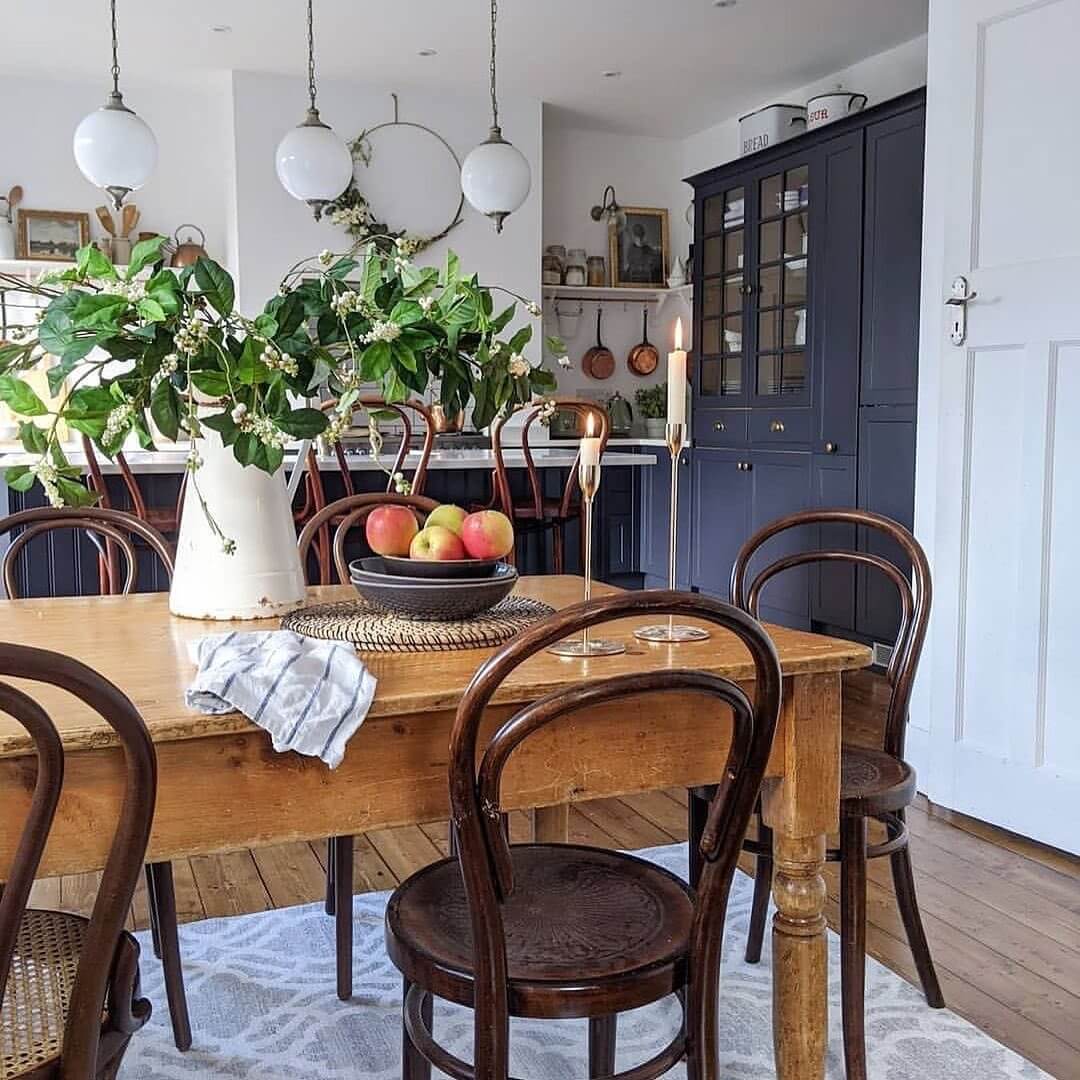How to Get Planning Permission in the UK – What to Expect

Whether you want to renovate your bedroom, extend your home, build an office in your garden, or build a new house, you need planning permission from the appropriate authorities. But you don’t need that permission for every construction project.
When Do You Need Planning Permission?
You only need planning permission if the work meets ‘development’ standards per the Town and Country Planning Act of 1990. This includes:
- Engineering work
- Building work such as construction, demolition, structural changes, and rebuilding
- Mining work
- Land and building material changes
- Subdivision of a building to split it into two or more residential units
Work that does not come under development and, thus, doesn’t require planning permission includes the following:
- Interior changes. This does not include the mezzanine floors to increase the floor space of a retail establishment by more than 200 square meters
- Changes in the main usage of the building or land
- Building operations that do not alter the external appearance of the building

Types of Planning Permission You May Need
There are several types of planning permissions you may need, but the two main ones include the following:
Outline Planning Permission
If you want to build a house on a piece of land, you need an Outline Planning Permission. This is an application directed to local authorities stating your intent to construct a structure on the land so they can tell you what size the house should be.
This application doesn’t require a lot of details from your end. As per the name, you need to provide a brief project outline.

Full Planning Permission
Your local authority can tell you if you need Full Planning Permission. You need to apply for one via a form. Some of the projects you may need this permission for include the following:
- Demolitions
- Structural changes
- Building in your garden
- Increasing the size of your property with an extension
- Changing the main usage of a building
If you carry out work that requires planning permission without acquiring said permission, you can get an enforcement notice from your local authority.
This is a cease and desist order that will also force you to undo all developments made. It is illegal to ignore these orders.
Additional Permission
You may need additional permissions if your site is within protected areas, such as sites designated for tree preservation.
If your project involves demolitions, the local authority first has to approve the method you want to use if the building is 50 cubic meters or has glass and walls. Moreover, if the demolition will have an environmental impact, the authority will let you know if the site needs to undergo a complete Environmental Impact Assessment (EIA).
In rare cases, the Secretary of State may evaluate planning applications themselves rather than leave them to local authorities. This can happen if the government believes your project can compromise growth in specific sectors.
How to Get Planning Permission
Step 1 – Determine Whether You Need Planning Permission
If you think you don’t need planning permission, think again. The application process is necessary to prevent development in certain areas that are disruptive or inappropriate. So before starting the process, make sure you need permission. You can save yourself a lot of legwork this way.
Step 2 – Contact Your Local Authorities
Contact your local authorities to get an idea about the application process you should follow. You will increase your chances of approval since they can recommend changes that can improve your application.
Step 3 – Fill out The Application
After getting the necessary information from the local authorities and making recommended changes to your plans, fill out the application for planning permission. Most of these can be filled out and submitted online. Some of the information you have to provide, include the following:
- The location plan and the site plan
- Agriculture holdings certificate
- Ownership certificate
The application must be accompanied by a fee which will differ depending on the plan’s details. Once submitted and paid for, expect a receipt in your email.
Step 4 – Application Evaluation
The local planning authority evaluates all planning applications. They can approve or reject it based on the following factors:
- Government policy violations
- Loss of privacy
- Compromised highway safety
- Nature conservation
- Impact on listed buildings
- Noise
- The materials and the details that are mentioned in the plan
They may also speak to your neighbours before approving or rejecting your application. However, any objections they voice will only be considered if they align with the considerations mentioned above.
Step 5 – Wait for Their Decision
You can go ahead with the developments in your plan once planning permission is approved. If it is rejected, on the other hand, you can face legal charges if you go ahead with the plan anyway. You will also lose money since the enforcement notice will force you to undo all current work.
That can be a long and expensive process, and you will get nothing for your troubles. So make sure you get professional advice beforehand.
You can also appeal their decision with the Planning Inspectorate, i.e., if you are unhappy with the approach your local authority used to evaluate your application. If that doesn’t work, you can complain to the Local Ombudsman.
Please note that the Ombudsman doesn’t have the authority to rescind a grant. A solicitor will be able to guide you further.
Final Words
Planning permission is not free and can cost you more than the applicable charges if you don’t follow the correct application process or fail to provide all the required information. To find out more, check with your local planning authority.
They have official planning officers with years of experience interpreting and applying planning laws and policies. A consultation will give you a clear idea of where you stand and what you can do to increase your chances of getting approval.
Planning Permission in the UK for a House: Understanding the Basics
Obtaining planning permission is a crucial step when building or significantly altering a house in the UK. This process ensures that your proposed development complies with local and national planning policies. Local planning authorities are responsible for granting or refusing permission based on various factors, including the impact on the neighbourhood, environmental considerations, and adherence to building regulations. It's essential to submit a detailed application, including architectural drawings and a design and access statement, to increase your chances of approval.

Planning Permission Check: Verifying Your Project's Requirements
Before embarking on any construction or renovation project, it's wise to conduct a planning permission check. This involves researching whether your proposed work falls under permitted development rights or requires full planning permission. You can start by consulting your local council's website or the national Planning Portal. Many councils offer pre-application advice services, which can provide valuable insights into the likelihood of your application's success and any potential issues to address.
How to Get Planning Permission in the UK: A Step-by-Step Guide
Securing planning permission in the UK involves several key steps. Begin by researching local planning policies and consulting with neighbours who might be affected by your project. Prepare detailed plans and supporting documents, including site plans, elevations, and a design statement. Submit your application to the local planning authority, typically online through the Planning Portal. Be prepared for a public consultation period and possible site visits by planning officers. The process usually takes 8 to 13 weeks for a decision, depending on the complexity of your application.
How to Get Planning Permission from Council: Navigating Local Authorities
When seeking planning permission from your local council, clear communication and thorough preparation are key. Start by arranging a pre-application meeting with a planning officer to discuss your proposals. Provide comprehensive documentation, including detailed plans, photographs, and impact assessments where necessary. Be prepared to address any concerns raised by the council or local residents. Consider employing a planning consultant for complex projects to navigate the process more effectively and increase your chances of approval.

View Planning Applications Near Me: Staying Informed About Local Developments
Keeping abreast of planning applications in your area is crucial for understanding local development trends and potential impacts on your property. Most local councils provide online planning registers where you can view current and past applications. You can typically search by postcode, address, or application number. Many councils also offer email alert services for new applications in your area. Regularly checking these resources allows you to stay informed and potentially comment on proposals that may affect your neighbourhood.
Do I Need Planning Permission for an Extension: Understanding Permitted Development
Whether you need planning permission for an extension depends on various factors. Many house extensions fall under permitted development rights, meaning they don't require full planning permission. However, there are strict limits on the size, height, and location of extensions under these rights. Key considerations include the property type, whether it's in a conservation area, and if you've previously extended the property. It's always advisable to check with your local planning authority or obtain a Lawful Development Certificate to confirm your extension's status.

Planning Portal: Your Online Resource for Planning Information
The Planning Portal is the UK government's official online platform for planning and building regulations information. It serves as a comprehensive resource for homeowners, developers, and professionals. Through the portal, you can submit planning applications, access guidance documents, and find information on building regulations. The site also offers interactive house guides to help you understand what projects might require permission. Utilising this resource can significantly streamline your planning process and ensure you have the most up-to-date information.
How Long Does Planning Permission Last: Understanding Time Limits
Planning permission in the UK typically lasts for three years from the date it's granted. This means you must commence the development within this timeframe, or the permission will expire. It's important to note that 'commencement' usually means more than just preparatory work; you should undertake a material operation on the site. If you're unable to start within three years, you may need to reapply or seek an extension of the time limit. Always check the specific conditions attached to your permission, as they may vary in some cases.
People Also Asked
How hard is it to get planning permission UK?
Obtaining planning permission in the UK can be challenging but not impossible. Success rates vary, with around 80-90% of applications approved nationally.
How much does planning permission cost UK?
Planning permission costs in the UK vary. A full application for a new house typically costs £462, while smaller projects may cost less.
How to get planning permission on land in the UK?
To get planning permission on UK land:
- Check local planning policies
- Prepare detailed plans
- Submit application to local authority
- Consult with neighbors
- Await decision (usually within 8-13 weeks)
How long does it take to get planning permission in the UK?
The standard timeframe for planning permission decisions in the UK is 8 weeks for minor applications and 13 weeks for major ones.
Can I build on my land in the UK?
You can build on your land in the UK, but most developments require planning permission. Some minor works fall under 'permitted development' rights.
How far can I build without planning permission UK?
Under permitted development rights, you can usually extend up to 4 meters from the rear wall of a detached house without planning permission.
What land is easiest to get planning permission?
Land within existing settlements or designated development areas is typically easiest to get planning permission for in the UK.
What do you need planning permission for UK?
In the UK, planning permission is generally required for:
- New buildings
- Major alterations to existing buildings
- Change of use of buildings or land
What is the 25 degree rule for planning permission?
The 25 degree rule is a guideline used to assess the impact of extensions on neighbors' light. It states that extensions shouldn't exceed a 25 degree angle from the center of a neighbor's window.
What is the success rate of planning permission?
The success rate for planning permission in the UK is generally high, with about 80-90% of applications approved nationally.
What happens if you don't get planning permission UK?
Building without required planning permission in the UK can result in:
- Enforcement action
- Fines
- Demolition orders
- Difficulty selling the property
How does planning permission work in the UK?
UK planning permission involves:
- Submitting an application to the local authority
- Public consultation
- Assessment by planning officers
- Decision by planning committee or delegated officer
How many times can you apply for planning permission UK?
There's no limit to the number of planning applications you can submit in the UK. You can reapply with modified plans if initially refused.
What happens if you are refused planning permission?
If refused planning permission, you can:
- Modify and resubmit your application
- Appeal the decision
- Seek pre-application advice for future submissions
How long does planning approval take UK?
Planning approval typically takes 8 weeks for minor applications and 13 weeks for major ones in the UK.
How do I get planning permission in England?
To get planning permission in England:
- Check local planning policies
- Prepare detailed plans
- Submit application online via the Planning Portal
- Pay the required fee
- Await decision
Can I build a house on my land in the UK?
You can build a house on your land in the UK, but you'll need planning permission unless it's replacing an existing dwelling.
How big can you build without planning permission UK?
Under permitted development rights, you can usually extend up to 4 meters from the rear wall of a detached house without planning permission.
Do I need an architect for planning permission UK?
While not legally required, an architect can significantly improve your chances of obtaining planning permission in the UK.
How hard is it to get planning permission on land UK?
Getting planning permission on undeveloped land can be challenging. Success depends on factors like location, local policies, and design quality.
Do you need planning permission for everything?
Not everything requires planning permission. Minor alterations and some extensions fall under 'permitted development' rights.
Where is it easiest to get planning permission?
Planning permission is typically easiest to obtain in areas designated for development or within existing settlements.
How successful is planning permission?
Planning permission applications have a high success rate, with about 80-90% approved nationally in the UK.
How to get house plans from council in the UK?
To get house plans from a UK council:
- Contact the local planning department
- Request a property search
- Pay the required fee
- Receive copies of available plans
How to increase chances of planning permission?
To increase planning permission chances:
- Research local policies
- Consult with neighbors
- Seek pre-application advice
- Use an experienced architect
- Address potential objections proactively
What is retrospective planning permission?
Retrospective planning permission is sought after development has already begun or completed. It doesn't guarantee approval and can be risky.
How long does it take to get planning permission in NI?
In Northern Ireland, planning decisions typically take 8 weeks for local applications and 16 weeks for major ones.
How long does planning permission take England?
In England, planning permission typically takes 8 weeks for minor applications and 13 weeks for major ones.
How long does it take to get planning permission in Scotland?
In Scotland, planning decisions usually take 8 weeks for local developments and 16 weeks for major ones.
Is it cheaper to buy land and build a house in the UK?
Building a house can be cheaper than buying in some areas, but costs vary widely. Consider planning, infrastructure, and construction expenses.
Can you live on land without planning permission UK?
Living on land without planning permission in the UK is generally not allowed and can result in enforcement action.
Can I build a house in my garden in the UK?
Building a house in your garden typically requires planning permission. It may be possible if your garden is large enough and meets local policies.
Is it hard to get planning permission in UK?
While challenging, getting planning permission in the UK is not impossible. Success rates are generally high, around 80-90% nationally.
How much does planning permission cost in the UK?
Planning permission costs vary. A full application for a new house typically costs £462, while smaller projects may cost less.
How to get planning permission on land in the UK?
To get planning permission on UK land:
- Research local policies
- Prepare detailed plans
- Submit application to local authority
- Consult with neighbors
- Await decision
Do you need planning permission for a loft conversion?
Many loft conversions fall under permitted development rights and don't need planning permission, but there are exceptions.
How long does it take to build a house in the UK?
Building a house in the UK typically takes 6-12 months, depending on size, complexity, and weather conditions.
How long does it take to get a building permit in the UK?
Building permits (Building Regulations approval) usually take 5-8 weeks to obtain in the UK.
What is the difference between outline planning and full planning?
Outline planning establishes the principle of development, while full planning provides detailed approval for all aspects of the project.
Do you need planning permission for a conservatory?
Many conservatories fall under permitted development rights and don't need planning permission, but size and location restrictions apply.
Can I build on my land in the UK?
You can build on your land in the UK, but most developments require planning permission. Some minor works fall under 'permitted development' rights.
How far can I build without planning permission UK?
Under permitted development rights, you can usually extend up to 4 meters from the rear wall of a detached house without planning permission.
What do you need planning permission for UK?
In the UK, planning permission is generally required for:
- New buildings
- Major alterations to existing buildings
- Change of use of buildings or land
How long does it take to get planning permission to build a house UK?
Getting planning permission to build a house in the UK typically takes 8-13 weeks, depending on the complexity of the application.
How long is planning permission valid UK?
Planning permission in the UK is usually valid for three years from the date of approval.
What is the 25 degree rule for planning permission?
The 25 degree rule states that extensions shouldn't exceed a 25 degree angle from the center of a neighbor's window to assess light impact.
What is the success rate of planning permission?
The success rate for planning permission in the UK is generally high, with about 80-90% of applications approved nationally.
What happens if you don't get planning permission UK?
Building without required planning permission can result in enforcement action, fines, demolition orders, and difficulty selling the property.
How does planning permission work in the UK?
UK planning permission involves submitting an application, public consultation, assessment by planning officers, and a decision by the planning committee or delegated officer.
How do I get planning permission in England?
To get planning permission in England:
- Check local planning policies
- Prepare detailed plans
- Submit application online via the Planning Portal
- Pay the required fee
- Await decision
How hard is it to get planning permission UK?
While challenging, getting planning permission in the UK is not impossible. Success rates are generally high, around 80-90% nationally.
Do I need an architect for planning permission UK?
While not legally required, an architect can significantly improve your chances of obtaining planning permission in the UK.
What is the maximum size you can build without planning permission UK?
Under permitted development rights, you can usually extend up to 4 meters from the rear wall of a detached house without planning permission.
How much value does planning permission add to land UK?
Planning permission can significantly increase land value, often by 50% or more, depending on location and development potential.
What land is easiest to get planning permission?
Land within existing settlements or designated development areas is typically easiest to get planning permission for in the UK.
Can I build a house on my land in the UK?
You can build a house on your land in the UK, but you'll need planning permission unless it's replacing an existing dwelling.
How much does planning permission cost UK?
Planning permission costs in the UK vary. A full application for a new house typically costs £462, while smaller projects may cost less.
How many times can you apply for planning permission UK?
There's no limit to the number of planning applications you can submit in the UK. You can reapply with modified plans if initially refused.
How to get house plans from council in the UK?
To get house plans from a UK council:
- Contact the local planning department
- Request a property search
- Pay the required fee
- Receive copies of available plans
What requires planning permission in the UK?
Planning permission in the UK is typically required for significant changes to buildings or land use. This includes constructing new buildings, major alterations to existing structures, and changing how land or buildings are used. However, some minor changes fall under 'permitted development rights' and don't need formal permission. Always check with your local planning authority, as rules can vary by location and may change over time.
How big can a building be without planning permission UK?
Without planning permission in the UK, you can generally build outbuildings under permitted development rights. These structures should be single storey with a maximum eaves height of 2.5 meters and an overall height of 4 meters (3 meters for flat roofs). They must not cover more than 50% of the land around the original house. For extensions, size limits vary depending on the type of property and location.
How hard is it to get planning permission on land in the UK?
Obtaining planning permission in the UK can be challenging, with difficulty varying based on factors like location, development type, and local planning policies. The process involves submitting detailed plans, consulting with neighbors, and adhering to local development guidelines. Success rates vary, but generally, well-prepared applications that align with local planning policies have a higher chance of approval. Early consultation with planning professionals can significantly improve your chances.
How much can I extend my house without planning in the UK?
Under permitted development rights, you can typically extend a detached house by up to 8 meters to the rear for single-storey extensions, or 6 meters for semi-detached or terraced houses. Two-storey extensions can extend up to 3 meters. However, these rights are subject to various conditions and can be removed in some areas. Always check with your local planning authority, as these rules may change and vary by location.
Do I need planning permission for a garden room in the UK?
Garden rooms often fall under permitted development rights if they meet certain criteria. They should be single storey, with a maximum eaves height of 2.5 meters and an overall height of 4 meters (3 meters for flat roofs). The structure should not cover more than 50% of the land around the original house. However, if you plan to use the garden room as living accommodation or it doesn't meet these criteria, you'll likely need planning permission.
Do I need a permit to run electricity to my shed in the UK?
Running electricity to a shed typically doesn't require planning permission, but it must comply with building regulations. You should use a qualified electrician who can self-certify the work under the Part P scheme. While planning permission isn't usually needed, you may need to notify your local building control department. Always ensure the work meets current safety standards and regulations.
What is the timeline for planning permission?
The standard timeline for a decision on a planning application in the UK is 8 weeks for simple applications, or 13 weeks for more complex ones. However, this can vary depending on the complexity of the application and the workload of the local planning authority. Some applications may take longer if additional information is required or if there are objections to consider.
Do I need planning permission for an extension?
Whether you need planning permission for an extension depends on its size and how it affects the existing property. Many extensions fall under permitted development rights, but there are limitations. Generally, you'll need permission if the extension exceeds specified size limits, is more than half the area of land around the original house, or is higher than the highest part of the existing roof. Always check with your local planning authority before proceeding.
How much is an acre of land with planning permission worth UK?
The value of an acre of land with planning permission in the UK varies greatly depending on location and the type of development permitted. Prices can range from £100,000 to over £1,000,000 per acre in prime areas. Urban areas and regions with high demand for housing typically command higher prices. The specific planning permission granted, local amenities, and potential for development all influence the land's value.
How much does an architect cost to draw plans in the UK?
Architect fees in the UK can vary widely based on the project's complexity and the architect's experience. You might expect to pay between £50 and £100 per hour, or a percentage of the total project cost, typically ranging from 5% to 12%. For a standard house extension, fees could range from £2,000 to £5,000 for initial plans. Always get multiple quotes and clarify what services are included in the fee.
What is the biggest building you can build without planning permission?
The largest building you can construct without planning permission is typically an outbuilding under permitted development rights. It should be single storey, with a maximum eaves height of 2.5 meters and a ridge height of 4 meters (3 meters for a flat roof). The building must not cover more than 50% of the land around the original house. However, these limits can vary, so always check with your local planning authority.
Do I need planning permission for a balcony?
Adding a balcony usually requires planning permission as it can affect neighbors' privacy and the appearance of the building. Balconies are considered a significant alteration to a property's exterior and can impact neighboring properties. Always consult your local planning authority before adding a balcony, as regulations can vary depending on the property type and location.
Do I need planning permission to add a bedroom?
If you're adding a bedroom within the existing structure of your house, you typically don't need planning permission. However, if you're extending the house to add a bedroom, you may need permission depending on the size and location of the extension. Internal alterations generally don't require planning permission, but they may still need to comply with building regulations.
Can I build smaller than my planning permission?
Yes, you can generally build smaller than what your planning permission allows without needing further approval. However, significant changes to the approved plans may require a new application or amendment. Minor alterations are usually acceptable, but it's always best to communicate any changes with your local planning authority to ensure compliance and avoid potential issues in the future.
What is the 45 degree rule in planning?
The 45 degree rule is a guideline used by planners to assess the impact of extensions on neighboring properties' light. It states that extensions should not cross a 45 degree line drawn from the center of the nearest ground floor window of an adjacent property. This rule helps ensure that new developments don't excessively block light to neighboring buildings. While widely used, it's a guideline rather than a strict regulation, and other factors are also considered in planning decisions.
Do I need an architect for an extension?
While not legally required, hiring an architect for an extension is often beneficial. They can help ensure your plans comply with current building regulations and planning laws. An architect can also optimize the design, potentially save costs in the long run, and handle the planning application process. For complex projects or those in sensitive areas, professional guidance can be particularly valuable in navigating the planning process successfully.
Can I live in a log cabin in my parents' garden in the UK?
Living in a log cabin in your parents' garden permanently would likely require planning permission, as it would be considered a separate dwelling. Temporary use might be allowed under certain circumstances, but long-term residential use typically requires formal approval. The cabin would need to meet building regulations and may be subject to council tax. Always check with your local planning authority, as regulations can vary and may change over time.
Do I need permission for a summer house in the UK?
A summer house often falls under permitted development rights if it meets certain criteria, similar to garden rooms. It should be single storey, with height restrictions and not cover more than 50% of the garden area. However, if you plan to use it as sleeping accommodation or it doesn't meet these criteria, you'll likely need planning permission. Always check current regulations with your local planning authority before proceeding.
Do I need planning permission to put a toilet in my garage in the UK?
Adding a toilet to your garage typically doesn't require planning permission, but it does need to comply with building regulations. You'll need to ensure proper drainage and ventilation. While planning permission isn't usually needed, you should check with your local authority and may need to obtain building control approval. The work should be carried out by a qualified professional to ensure it meets all necessary standards.
What permission do they have to be in the UK required?
This question seems to be about immigration rather than planning permission. For non-UK citizens, various visas and permits are required depending on the purpose and duration of stay. These might include work visas, student visas, or settlement permits. The specific requirements depend on factors such as nationality, reason for visit, and length of stay. It's best to consult the official UK government website or an immigration specialist for the most up-to-date and accurate information.
Related Blog Posts










Leave a comment